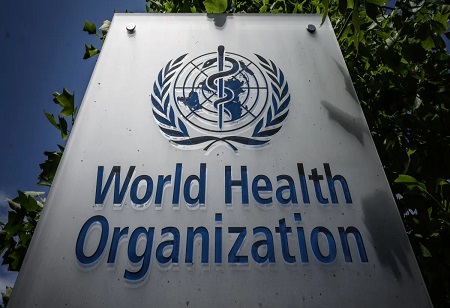India Pharma Outlook Team | Friday, 09 December 2022

The World Health Organization (WHO) is considering establishing a multi-country regulatory cooperation platform for traditional medicine practitioners, which would speed up global acceptance and accessibility of Ayurveda within 10 to 15 years, according to a WHO official speaking at a conference in Goa today.
"Among our future priorities will be prevention, early detection, and rehabilitation to improve healthy life expectancy." "We need to understand how to use the nearly 500,000 registered Ayurvedic practitioners globally to achieve these goals," said Dr Geetha Krishnan, Technical Officer, Traditional Medicine, WHO, Geneva. Dr. Krishnan was speaking at a session on 'Expanding the Scope of Ayurveda' at the 9th World Ayurveda Congress (WAC) & Arogya Expo 2022, which began today at Campal Grounds in Goa. The four-day conclave is being organised by the World Ayurveda Foundation, a Vijnana Bharati initiative, with the support of the Union Ministry of Ayush and the Goa government.
He elaborated on WHO's activities to promote Ayurveda, saying the UN body has developed training modules for Ayurveda, benchmarks for regulating its practices, and a standardised terminology document to help Ayurveda practitioners interact with modern medicine more easily. "The WHO's Global Centre for Traditional Medicine will collaborate with various governments to bring more evidence-based Ayurveda to the world." "The WHO is about halfway through the process of including Ayurveda in the international classification of diseases," he said.
According to Dr. Krishnan, WHO sees Ayurveda as useful in a variety of ways that will help it meet the UN Sustainable Development Goals (SDGs) by 2030. Noting that Ayurveda is a cost-effective healthcare system for individuals and communities, he stated that Ayurvedic concepts can be fully utilised for achieving the SDGs if products, practises, and practitioners are considered. Dr. Krishnan stated that rough estimates suggest that the global market for Ayurveda will be $30 billion in 2022, and that approximately 93 Member States of WHO recognise the use of Ayurveda in their society. Furthermore, 16 MS regulate Ayurvedic practise, and five MS support Ayurvedic insurance coverage.
Dr. Krishnan also emphasised the significance of developing a methodology for utilising and improving access to safe, effective, high-quality, and affordable healthcare. "The scope of Ayurveda encompasses the psychological, physical, spiritual, and social dimensions of life," he explained. Prof Bhushan Patwardhan, National Research Professor-Ayush and Former Vice Chairman, UGC, called for looking at Ayurveda as a source of innovation as there is a huge potential for new ideas to crop up from Ayurveda. Dr. Bala Pesala of IIT Jodhpur believes it is time to effectively integrate Ayurveda and modern science. The moderator was Dr Ram Manohar, Director of the Amrita Centre for Advanced Research in Ayurveda (ACARA), Amritapuri.